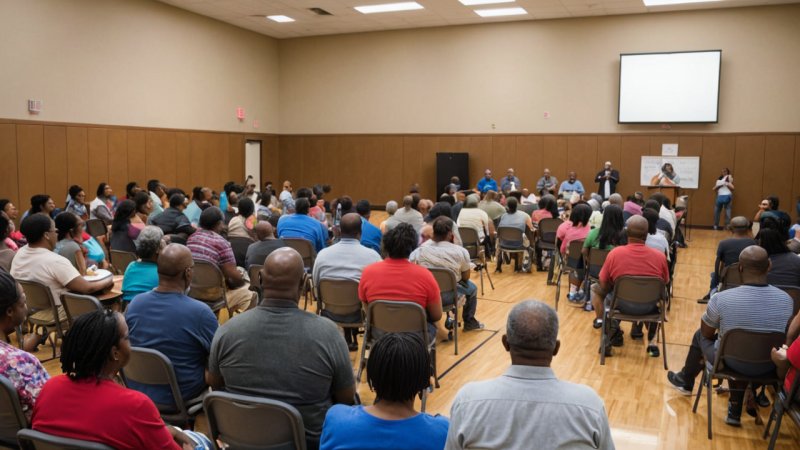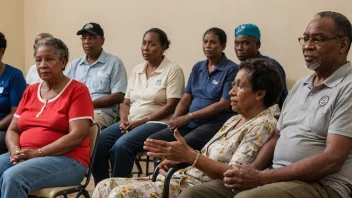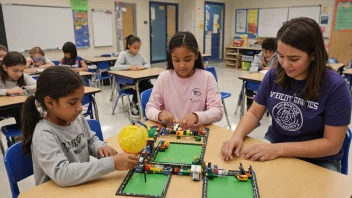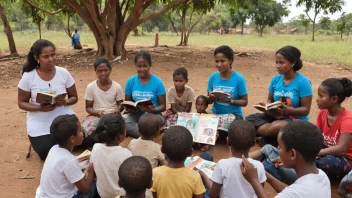In the aftermath of a crisis, whether it be natural disasters, social upheaval, or public health emergencies, communities often find themselves fractured. Trust, which is the bedrock of social cohesion, can be severely undermined. Rebuilding this trust is essential for recovery and resilience. This article explores effective strategies for restoring trust in communities post-crisis, emphasizing the importance of community engagement, transparency, and collaborative efforts.
The Importance of Trust in Communities
Trust within communities serves as a crucial component in ensuring cooperative behavior among residents. It fosters social networks, facilitates communication, and enhances the effectiveness of collective action. When trust is eroded due to crises, the implications can be profound:
- Increased Conflict: Distrust can lead to tensions, divisions, and conflicts among community members.
- Reduced Participation: Individuals may become disengaged from community initiatives, hindering recovery efforts.
- Impeded Recovery: Lack of trust can delay the implementation of recovery programs and services.
Rebuilding trust is not just beneficial; it is essential for the health and wellbeing of a community. It enables individuals to work together towards common goals, fosters resilience, and enhances the overall quality of life.
Strategies for Rebuilding Trust
1. Engage the Community
Community engagement is pivotal in rebuilding trust. This involves actively involving community members in the recovery process. Here are some effective ways to engage:
- Public Forums: Organize meetings where community members can voice their concerns, share experiences, and propose solutions.
- Focus Groups: Establish smaller focus groups to delve into specific issues, allowing for more in-depth discussions.
- Participatory Planning: Involve community members in the planning and decision-making processes for recovery initiatives.
2. Foster Transparency
Transparency helps to build trust by ensuring that community members feel informed and included in the recovery process. Strategies include:
- Regular Updates: Provide consistent updates on recovery efforts, challenges faced, and progress made.
- Open Communication Channels: Create platforms (both online and offline) where community members can ask questions and receive timely responses.
- Accountability: Establish mechanisms for accountability in the recovery process, ensuring that leaders are held responsible for their actions.
3. Build Collaborative Partnerships
Collaboration is key in harnessing the strengths of various stakeholders. Building partnerships with local organizations, governmental bodies, and NGOs can enhance trust through shared responsibility. Strategies include:
- Joint Initiatives: Launch projects that require collaboration between different groups, showcasing the power of working together.
- Resource Sharing: Pool resources and expertise to address community needs more effectively.
- Mutual Support: Foster a culture of mutual aid, where community members support one another in various capacities.
4. Promote Inclusivity
Inclusivity is vital in rebuilding trust as it ensures that all voices are heard. Here are ways to promote inclusivity:
- Diverse Representation: Ensure that diverse community members are represented in decision-making bodies.
- Accessibility: Make recovery programs accessible to all, including marginalized groups.
- Cultural Sensitivity: Acknowledge and respect the cultural differences within the community, tailoring approaches to fit diverse needs.
5. Focus on Healing and Wellbeing
Post-crisis recovery often involves addressing psychological and emotional wounds. Promoting healing can help restore trust. Strategies include:
- Support Services: Provide mental health resources and support groups for those affected.
- Community Events: Organize events that foster connection, such as community meals, workshops, or cultural celebrations.
- Storytelling: Encourage community members to share their stories, which can promote empathy and understanding among residents.
Case Studies of Successful Trust Rebuilding
Learning from successful case studies can provide valuable insights into effective strategies for rebuilding trust.
Case Study 1: Post-Hurricane Katrina New Orleans
After Hurricane Katrina devastated New Orleans in 2005, various grassroots organizations mobilized to rebuild the community. They implemented participatory planning processes, allowing residents to voice their needs and desires, ultimately leading to the development of community-driven initiatives that restored trust and fostered resilience.
Case Study 2: Community Healing in Rwanda
Following the genocide in 1994, Rwanda faced the monumental task of rebuilding trust among its citizens. The government, alongside NGOs, initiated community-based reconciliation programs that promoted dialogue between victims and perpetrators. This approach not only addressed grievances but also facilitated healing and trust-building.
The Role of Technology in Rebuilding Trust
In today's digital age, technology can play a significant role in rebuilding trust. Here are some ways technology can assist:
- Online Platforms: Utilize social media and websites to disseminate information and gather feedback.
- Data Transparency: Use technology to share data related to recovery efforts, making processes more transparent.
- Virtual Engagement: Host online forums and webinars to engage community members who may be unable to attend in-person meetings.
Conclusion
Rebuilding trust in communities post-crisis is a multifaceted endeavor that requires commitment, collaboration, and compassion. By engaging community members, fostering transparency, building partnerships, promoting inclusivity, and focusing on healing, communities can restore the social fabric that binds them together. The journey may be challenging, but the rewards of a resilient, trusting community are immeasurable. As individuals, we can contribute to this process by advocating for these strategies, participating in community initiatives, and supporting efforts that prioritize trust-building. Our collective action can create a brighter, more cohesive future for all.






